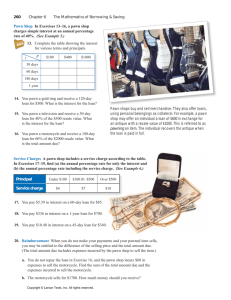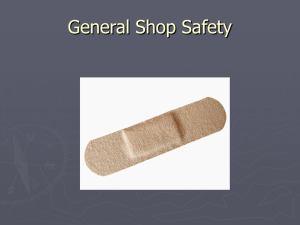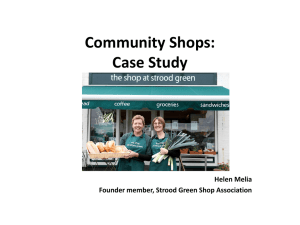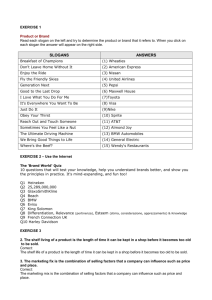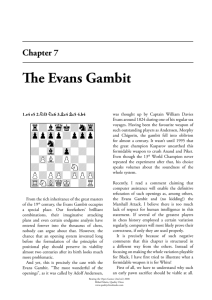Picasso Pawn loans to Durham
advertisement
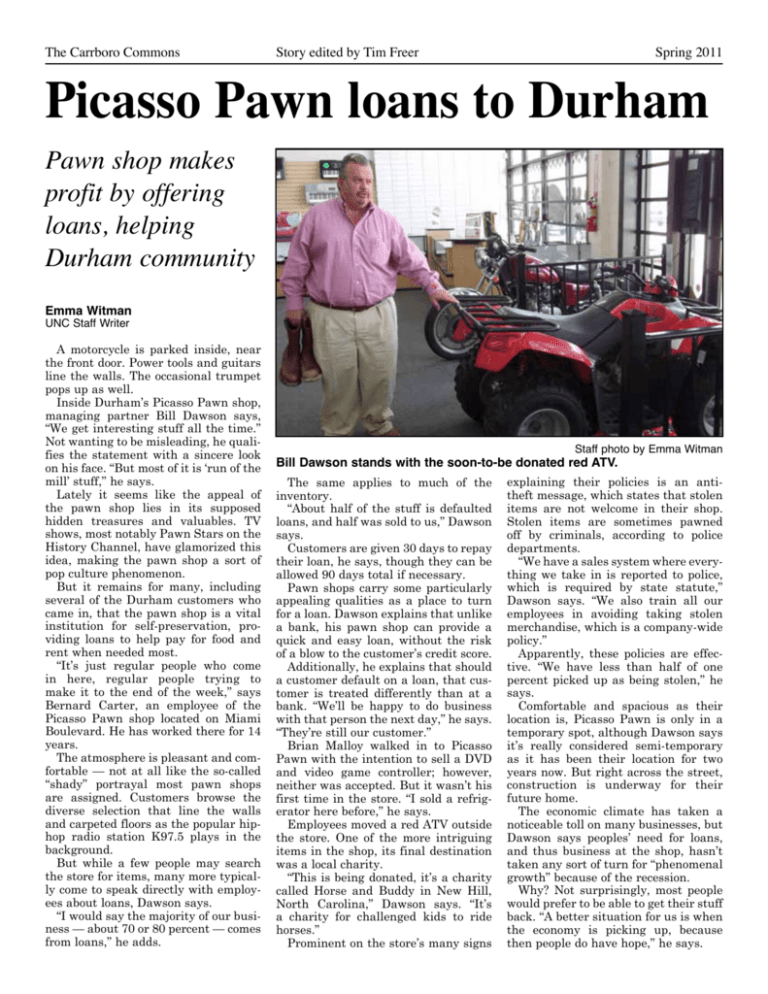
The Carrboro Commons Story edited by Tim Freer Spring 2011 Picasso Pawn loans to Durham Pawn shop makes profit by offering loans, helping Durham community Emma Witman UNC Staff Writer A motorcycle is parked inside, near the front door. Power tools and guitars line the walls. The occasional trumpet pops up as well. Inside Durham’s Picasso Pawn shop, managing partner Bill Dawson says, “We get interesting stuff all the time.” Not wanting to be misleading, he qualifies the statement with a sincere look on his face. “But most of it is ‘run of the mill’ stuff,” he says. Lately it seems like the appeal of the pawn shop lies in its supposed hidden treasures and valuables. TV shows, most notably Pawn Stars on the History Channel, have glamorized this idea, making the pawn shop a sort of pop culture phenomenon. But it remains for many, including several of the Durham customers who came in, that the pawn shop is a vital institution for self-preservation, providing loans to help pay for food and rent when needed most. “It’s just regular people who come in here, regular people trying to make it to the end of the week,” says Bernard Carter, an employee of the Picasso Pawn shop located on Miami Boulevard. He has worked there for 14 years. The atmosphere is pleasant and comfortable — not at all like the so-called “shady” portrayal most pawn shops are assigned. Customers browse the diverse selection that line the walls and carpeted floors as the popular hiphop radio station K97.5 plays in the background. But while a few people may search the store for items, many more typically come to speak directly with employees about loans, Dawson says. “I would say the majority of our business — about 70 or 80 percent — comes from loans,” he adds. Staff photo by Emma Witman Bill Dawson stands with the soon-to-be donated red ATV. The same applies to much of the inventory. “About half of the stuff is defaulted loans, and half was sold to us,” Dawson says. Customers are given 30 days to repay their loan, he says, though they can be allowed 90 days total if necessary. Pawn shops carry some particularly appealing qualities as a place to turn for a loan. Dawson explains that unlike a bank, his pawn shop can provide a quick and easy loan, without the risk of a blow to the customer’s credit score. Additionally, he explains that should a customer default on a loan, that customer is treated differently than at a bank. “We’ll be happy to do business with that person the next day,” he says. “They’re still our customer.” Brian Malloy walked in to Picasso Pawn with the intention to sell a DVD and video game controller; however, neither was accepted. But it wasn’t his first time in the store. “I sold a refrigerator here before,” he says. Employees moved a red ATV outside the store. One of the more intriguing items in the shop, its final destination was a local charity. “This is being donated, it’s a charity called Horse and Buddy in New Hill, North Carolina,” Dawson says. “It’s a charity for challenged kids to ride horses.” Prominent on the store’s many signs explaining their policies is an antitheft message, which states that stolen items are not welcome in their shop. Stolen items are sometimes pawned off by criminals, according to police departments. “We have a sales system where everything we take in is reported to police, which is required by state statute,” Dawson says. “We also train all our employees in avoiding taking stolen merchandise, which is a company-wide policy.” Apparently, these policies are effective. “We have less than half of one percent picked up as being stolen,” he says. Comfortable and spacious as their location is, Picasso Pawn is only in a temporary spot, although Dawson says it’s really considered semi-temporary as it has been their location for two years now. But right across the street, construction is underway for their future home. The economic climate has taken a noticeable toll on many businesses, but Dawson says peoples’ need for loans, and thus business at the shop, hasn’t taken any sort of turn for “phenomenal growth” because of the recession. Why? Not surprisingly, most people would prefer to be able to get their stuff back. “A better situation for us is when the economy is picking up, because then people do have hope,” he says.


